The City That Care Forgot: Spike Lee and the ‘New’ New Orleans Blues
Spike Lee's new four-hour HBO documentary, ?When the Levees Broke: A Requiem for New Orleans in Four Acts,? which premiered Monday night (and continues Tuesday night), is a haunting, maddening and expertly told story about the signature event in recent American history that showed how little our government truly cares for many of its citizens.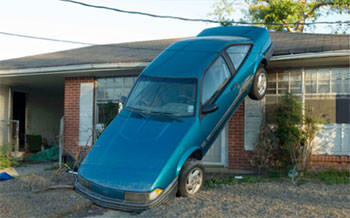
President Bush can kiss my ass The government can kiss my ass St. Bernard Parish can kiss my ass There?s not much ass left, but still enough to kiss.
— Cheryl Livaudais
Resident, St. Bernard Parish
In one of several remarkable scenes from Spike Lee?s new four-hour documentary, ?When the Levees Broke: A Requiem for New Orleans in Four Acts,? a young man who sat out the flood in the hot and stenching Superdome surprises us with a recollection of grace. During a particularly desperate moment in the sewer — no water, no food, no help in sight — someone took charge. ?There was this brother named Radio,? he tells us, ??and he started clapping it up, like in a basketball game?. It was a big, big spirit; people just started singing praises.?
Our storyteller continues in voiceover as the camera cuts to archived footage from the Superdome — a line of men and women dancing and singing, sweat visible through dirty T-shirts. ?It was a proud moment for us. We marched around the ?dome, and that time I felt back to the Movement, the civil rights movement, when it was real powerful.?
This appeal to ?the Movement? is fitting. The poorest people in one of the poorest major cities in the United States are now even poorer than they were before, and the fact that most of them are black is no coincidence. Lee?s team devotes a great deal of time and craft to the argument that the devastation resulted from an event in political history — not an event in weather. The film, which was shown for an emotional audience in New Orleans on Wednesday night and will air in two parts on HBO next week, is at once a heartbroken hymn to a ravaged city, a comprehensive chronicle of the financial and geographical impact of the hurricane itself, and — most important — an essential new chapter in the unfinished story of the struggle for civil rights in America.
To write that chapter, Lee asked for and was granted four hours of airtime — twice the amount HBO had originally allotted for the documentary. Lee and a small crew visited New Orleans nine times and interviewed more than 80 people, including climatologists, politicians, engineers and on-site journalists, all of whom provide informative, though sometimes conflicting, accounts of many different facets of the hurricane. The story that emerges is one of colossal and criminal government failure on local, state and federal levels. Its many narrators cast an equally scornful eye on President Bush, FEMA, the insurance companies, Gov. Kathleen Blanco and the oil business.
One might expect that all this anger would amount to a tiresome polemic, especially at such a long running time, and moreover because Lee himself has never been known as a subtle filmmaker. At his best, however, he is a gifted one, with an exceptional sense of craft. Even his worst films have always showcased his inventive and remarkable ear for the profane poetry of American speech. Here Lee wisely turns that ear to the voices of the ravaged city as they spin colorful and dramatic accounts of their experiences before, during and after the storm: the salty and delightful Phyllis Montana LeBlanc, a wife and mother who compares the storm to the 50-foot woman of B-movies ripping the skin off her home, and then delights us with an account of her near throw-down with a cold U.S. servicewoman; Gina Montana, who describes the agony of seeing people ?treated like cattle,? and reminds us that before it was called The Big Easy, New Orleans was known as The Town That Care Forgot; and finally, Fred Johnson, obscene and on-point, with a snorted dismissal of George Bush and his advisers: ?These fools, they don?t even know four dogs got four assholes!?
The interviews with the displaced victims of the storm, both black and white, are the most gripping, but Lee also provides political and historical context. He devotes a good deal of space to the testimony of local leaders, including Mayor Ray Nagin and then-Police Chief Eddie Compass — also giving airtime to those who would criticize their actions: Compass for spreading hysteria with his unsubstantiated claims of rapes and murder in the Superdome and subsequent star turn on the talk-show circuit; and Nagin for consulting with the business community about a mandatory evacuation of the city.
Lee does not neglect the landmark moments in Katrina?s media coverage, from Soledad O?Brien?s surreal interrogation with an apparently brain-dead Mike Brown, to the tape of Bush being warned about the possibility of levees breaking, to Barbara Bush?s infamous assurance in Houston that since many of the victims were ?underprivileged anyway,? displacement was ?working out well for them? (to which the indomitable Montana LeBlanc responds by offering Mrs. Bush her cellphone number and saying, ?You tell her to call me and say that shit.?) Nor does he neglect Kanye West?s impromptu televised announcement that ?George Bush doesn?t care about black people,? along with caustic reminders that Bush was not the only object of scorn: Michael Eric Dyson, professor and author of ?Come Hell or High Water: Hurricane Katrina and the Color of Disaster,? reminds us that Condoleezza Rice?s preoccupations during the period of peak suffering included shoe-shopping, theater and a game of tennis with Monica Seles — ?Blahniks, Broadway and balls are more important than black people who look like her — for this woman from Birmingham??
But the real question is, what?s next? In Act IV, an Army engineer promises to bring the levees back to pre-Katrina security levels before the next hurricane season. The promise, made several months ago, has not been kept — and even if it had been, it would be completely nonsensical to restore security levels that have proved so fatally deficient. The wetlands, in the words of one expert, are strangled ?like a hand cut off by a rubber band,? and have been eroded to the point of similar impotence. New Orleans itself was already one of the most dangerous cities in the nation in terms of crime, and it?s seen a spike in violent crime in recent months. Worse still, more than 200,000 of its residents are still scattered across 46 states. Their bitter longing for home is understandable and legitimate, but the recent and documented worldwide rise in hurricane severity makes it highly unlikely that bringing people home would be doing them a service. Indeed, Mike Tidwell, author of the recently published ?The Ravaging Tide: Strange Weather, Future Katrinas, and the Coming Death of America?s Coastal Cities,? calls Bush?s exhortations to return to New Orleans an ?act of mass homicide.?
The victims want to rebuild, and it is easy to see why. Much of the film?s third act is devoted to the city?s musical history. Some of the same people we?ve already watched curse and weep through stories of loss now become cheerful, as they speak of their hometown?s heritage. We learn that it was a place where slaves where permitted to play music on Sundays, where, because of a peculiarly French relationship to human bondage, ?you could buy black people, but marry ?em too,? and where one could be a slave and still go to the opera. One wishes that this portion of the documentary would go on forever, as Lee samples liberally from decades of music and street scenes: Mardi Gras, Indian dances, drum circles and, of course, funeral marches. The jazz funeral is a particular child of this city; it begins with sorrowful hymns, a ?giving way to grief,? but traditionally ends on a note of celebration. ?The idea,? we are told, ?is that ?Yeah, I?m sad you?re gone, but it was sure was nice to know you.??
America has not known New Orleans well enough. If we did, we?d have done more to save and protect her. ?When the Levees Broke? is a jazz funeral, a chorus of voices, some angry, some informed, some specialized, all trying to make sense of a death, not just of one of our loveliest cities but of an illusion: the illusion that our government cares about its citizens.
Your support matters…Independent journalism is under threat and overshadowed by heavily funded mainstream media.
You can help level the playing field. Become a member.
Your tax-deductible contribution keeps us digging beneath the headlines to give you thought-provoking, investigative reporting and analysis that unearths what's really happening- without compromise.
Give today to support our courageous, independent journalists.
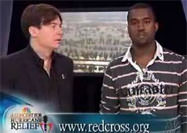
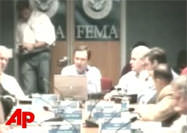
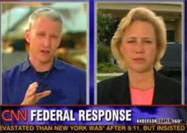

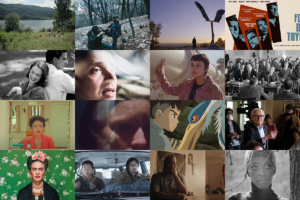
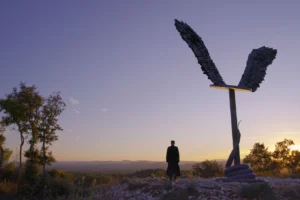
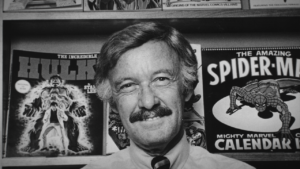
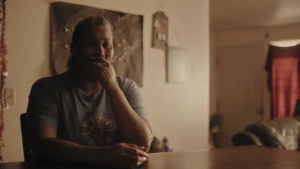

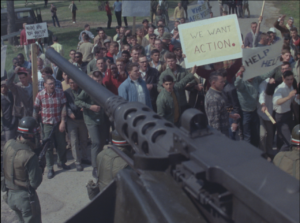
You need to be a supporter to comment.
There are currently no responses to this article.
Be the first to respond.